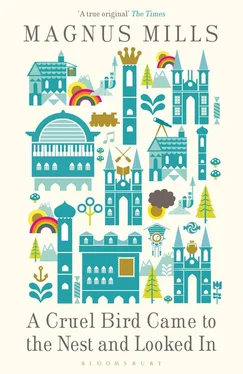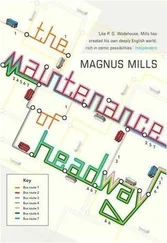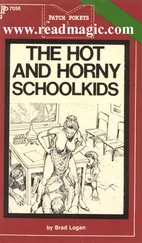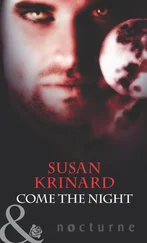Greylag, in the meantime, had silently rejoined the orchestra as they packed away their instruments. I intended to rush over and congratulate him but no sooner had I got to my feet than I was engulfed by a crowd of well-wishers, all slapping me on the back for my supposed tour de force . Then Smew called me across to join his entourage. He went sweeping out into the night and I had no option but to follow; which meant that Greylag would have to wait until the following day.
By then, however, events had begun to unfold rather swiftly. It was quite a while before I had the chance to speak to Greylag again.
I was on my way to the cake next morning when I learned some disturbing news: Brambling had been so upset by the failure of the currency that he’d resigned his post as Chancellor. The first I knew of it was when I saw him standing outside the counting house with his bags packed. Apparently, he’d already seen Smew and had his resignation accepted.
‘Didn’t he try and persuade you to reconsider?’ I asked.
‘Oh yes,’ replied Brambling, ‘he offered the usual platitudes but I’m afraid it was too little too late. I’ve made up my mind to go and I’m not changing it again.’
‘What are you planning to do?’
‘I intend to return to the provinces and fade into obscurity.’
Nevertheless, his duties were incomplete. He wasn’t going anywhere until he’d seen the ledger returned safely to its rightful home.
‘Those scrutineers won’t find any errors,’ he declared, ‘if that’s what they’re looking for.’
I felt slightly sorry for Brambling. After all, it wasn’t his fault that the currency was worthless; indeed, the slide had begun years before he commenced his brief tenure. Everyone always assumed that Greater Fallowfields possessed vast reserves of gold and silver bullion, but now the assumption was shown to be untrue. All we had was a hoard of coins whose value depended on the good name of the empire. This, it transpired, was no longer enough: the empire was on the wane. We couldn’t even resort to buried treasure. Hidden somewhere was a crown of solid gold, but nobody knew where it was. Consequently we were unable to pay our debts, and Brambling blamed himself. I left him brooding and continued my journey towards the cake.
When I arrived I was confronted by a huge number of parcels stacked outside the main door. There were roughly a hundred of them, all wrapped in brown paper, and I guessed they were the orchestra’s new coats. This was typical of the empire: necessary items could never be found until after they were needed. I decided that Dotterel must have had a change of heart; presumably he’d located the garments and ordered these parcels to be dispatched forthwith, but the postmen had then failed to deliver them in time for the concert.
On examining the parcels closely, however, I discovered that they did not bear the imperial postmark. Instead, they were all stamped with the letters CoS.
Quickly I opened one of them. Inside, neatly pressed and folded, was an olive drab uniform. I was still standing there holding it when Whimbrel appeared.
‘We’re wanted down at the counting house,’ he said, ‘urgently.’
I rewrapped the parcel and put it back on its pile. Then we set off. As we walked, I informed Whimbrel about Brambling’s impending departure. He was unsurprised.
‘Dotterel and Garganey have tendered their resignations too,’ he said. ‘It seems they’ve had the idea of combining the workforce into some kind of trade organisation before it dwindles any further. They’ve both come to the conclusion that workers can’t be ruled from the top down; so they’ve decided to join their ranks and develop a democratic movement.’
‘Is that why we’re needed at the counting house?’ I enquired.
‘No,’ replied Whimbrel, ‘but the matter is equally serious. Grosbeak and his men have returned with the ledger.’
There was a small gathering outside the counting house when we got there. Smew was present, of course, as well as Wryneck and Shrike. Representing the visitors were Grosbeak and Merganser, accompanied by a few of their henchmen; but we saw no sign of Brambling.
‘He’s gone,’ explained Wryneck. ‘He headed off as soon as the ledger was safely returned.’
‘Didn’t he say goodbye?’ I asked.
‘He did to me, yes,’ said Wryneck.
‘And me,’ added Shrike.
‘Well, he didn’t to me,’ I said.
‘Can we please get on?’ demanded Grosbeak.
‘Certainly,’ said Smew. ‘Let’s go inside.’
One of Grosbeak’s assistants had laid the ledger on the table, and now we assembled around it. Grosbeak settled down in Brambling’s former chair. Smew sat opposite. As de facto regent he was our natural spokesman.
‘We have studied your records,’ Grosbeak began, ‘and they are reasonably transparent.’
‘Good,’ said Smew.
‘You have a negative balance of half-a-crown.’
‘So I believe.’
Grosbeak opened the ledger at a certain page.
‘Let’s get straight down to business,’ he continued. ‘We are prepared to defer the cash payment as long as three conditions are fulfilled.’
‘Just a moment,’ murmured Smew. He reached into his pocket and produced his notepad and pencil. Then he sat holding them at the ready. ‘Well,’ he said, ‘what are these conditions?’
‘Firstly, that the empire adopts Standard Railway Time.’
‘Ah,’ said Smew, ‘the march of progress.’
‘It’s quite elemental,’ Grosbeak commented. ‘You need to be integrated into the network and you might as well do it now as later.’
‘We’ve recently put a lot of effort into setting our clocks for winter,’ said Whimbrel.
‘That can’t be helped,’ said Grosbeak. ‘You’ll just have to reset them.’
‘Let’s hear the second condition,’ said Smew.
‘We wish to requisition your cake. It is a fine building with a large capacity: we propose to use it for future recruitment rallies.’
‘What about the orchestra?’ I objected. ‘They have nowhere else to go.’
‘I was coming to that,’ said Grosbeak. He referred briefly to the ledger. ‘I understand that the imperial orchestra consists entirely of serfs.’
‘Correct,’ said Smew.
‘These serfs being the property of the crown estates: actually the only portable property.’
As Grosbeak uttered these words I sensed Whimbrel stirring beside me. I began to feel rather uneasy, and even Wryneck drew a deep breath.
‘Such is the nature of serfdom, yes,’ said Smew warily.
‘Then the third condition is that the orchestra be taken into our protection and removed to the City of Scoffers.’
‘That’s not fair,’ said Wryneck.
‘Fairness doesn’t enter into it,’ replied Grosbeak. ‘Those are our terms. Don’t forget, we’re the injured party, not you. We built the railway as per the contract. Now we desire recompense. It’s as simple as that.’
‘Yes, yes,’ said Smew, ‘we fully understand.’
At that instant a shrill whistle was heard in the distance.
Grosbeak looked at his watch.
‘Five o’clock,’ he announced. ‘The evening train is exactly on schedule.’
Simultaneously, public clocks all around the capital began to strike eleven. Or some of them did anyway. Others played a short melody and then chimed the hour. As I listened it quickly became evident that a few of these clocks needed urgent attention. They’d only been adjusted about two weeks previously, yet half of them sounded as if they’d lost several minutes already! No sooner would one clock complete its cycle of chimes than another would start up nearby, then another after that, as though they were arguing about precisely what time it was. Of course, as far as Grosbeak was concerned they were all ‘wrong’. If his first condition was to be met, then someone would have to go around altering them again. Without Dotterel on hand to oversee the task, I wondered how this could possibly be achieved.
Читать дальше












